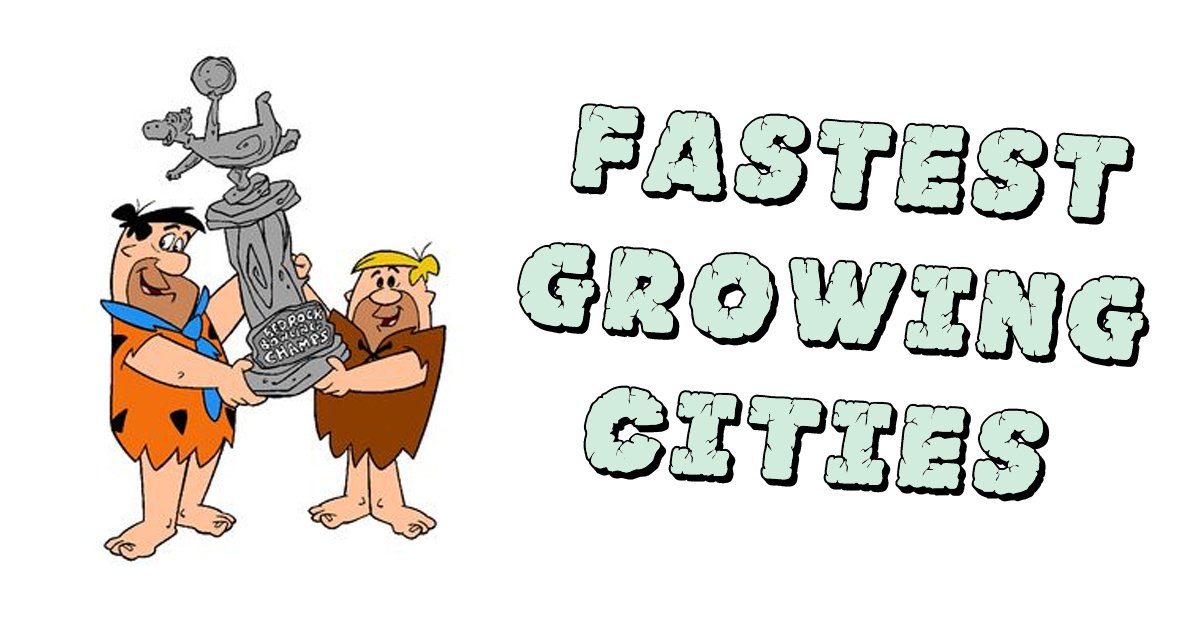
Paleozoic Approach to Civic Success
I have a real problem with population growth maintaining its undeserved place on the mantle of trophies for city success. Cities don’t grow their population in an alternative universe. They grow in the same overpopulated world of 7.4 billion currently killing our planet.
By all measures, the scale of human activity is slowly trashing the planet. We are extinguishing species at an alarming rate, drying up the world’s major rivers and aquifers and toxifying the rest, fishing out the world’s fisheries, acidifying the oceans and disrupting the climate. This shouldn’t come as a surprise when we plant 7.4 billion humans on a planet scientists estimate can only sustain 2 billion over the long term.
So, why would anyone pursue or celebrate population growth? I wonder when “progressive” journalists are going to progress out of the Paleozoic Era. No offense, but this piece on AlterNet just begs for dissection:
20 Fastest Growing U.S. Cities in 2016
It’s not all an economic disaster, as the GOP candidate for president would have you believe.
In this story, AlterNet staff writer Elizabeth Preza follows the growth boosters parade without exercising any critical thought. It’s understandable. She’s been served the eternal growth Kool-Aid just like everyone else. But we need better.
“…it’s easy to get bogged down by claims that our great nation’s economy is in free-fall. But in reality, cities across the United States are experiencing positive signs of economic growth, determined through factors including population growth and falling unemployment rates.”
Preza is reporting on a ranking by WalletHub of “fastest growing cities,” so the metrics aren’t hers, but she reports on them as though they are beyond question.
“The personal finance site use 14 key sociodemographic and economic factors, including increased numbers of businesses and startups, growth in regional GDP per capita and an increased ratio of full-time to part-time jobs.”
Sorry, fail. GDP growth, per-capita or otherwise, is not a sustainable goal in developed economies. Whether it’s population or economy, “fastest growing” cities should be at the bottom of any good list. How about “healthiest cities” or “healthiest economies”? The healthiest cities and economies of the 21st century will not be the fast-growing ones. That is unsustainable.
We count on progressive journalists to be the first to reach escape velocity from the gravity force keeping us all anchored in growth worship mode on a planet where growth is no longer in our best interest. Economic growth and population growth are not noble goals in our current situation.
So I encourage journalists like Elizabeth Preza to become familiar with limits to growth. It’s not a conspiracy theory; it’s backed by many, many serious scientists and scientific bodies. We’re counting on you to spread enlightenment, not to enshrine a Fred Flintstone approach to success and progress.
Join me in celebrating enlightened thinking and busting pro-growth bias in the media. Click this button:
Tags: climate change, economic growth, economy, gdp, gdp growth, limits to growth, overpopulation, overshoot, population growth, prosperity, sustainability, sustainable popluation, urban growth
Trackback from your site.

Brian Sanderson
| #
Ah, imagine the city of the future. Designed to house and control the maximum possible human population. Everyone slotted onto a padded shelf and plugged into a virtual reality machine that gives them the illusion of living a satisfying life. The bare necessities for base metabolism supplied by plastic plumbing, straight to the gut. In the interests of energy efficiency, the machine will give you the illusion of chewing. Wastes plumbed out through a different pipe.
No need to imagine. The process is well under way. Cities have always been places for shelving surplus people.
Reply
Dave Gardner
| #
sigh
Reply